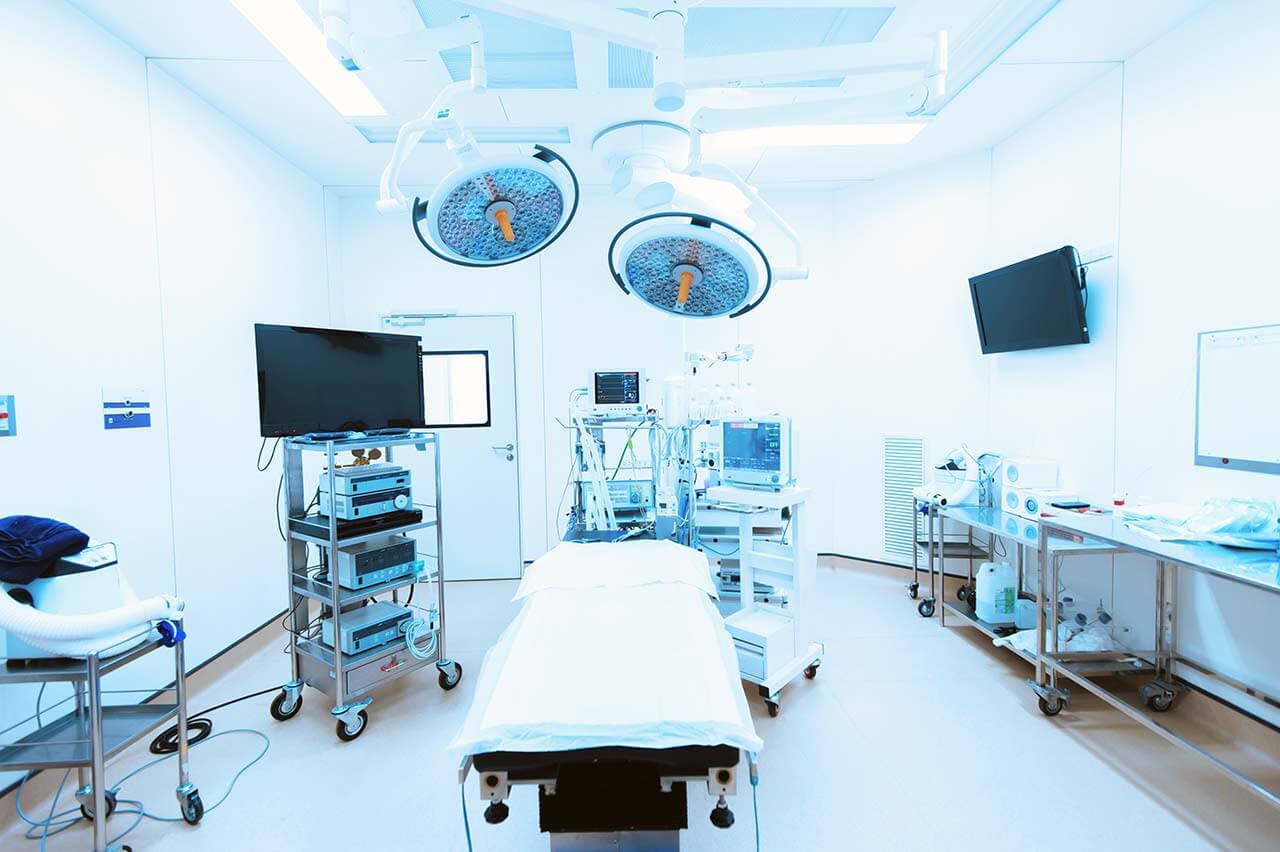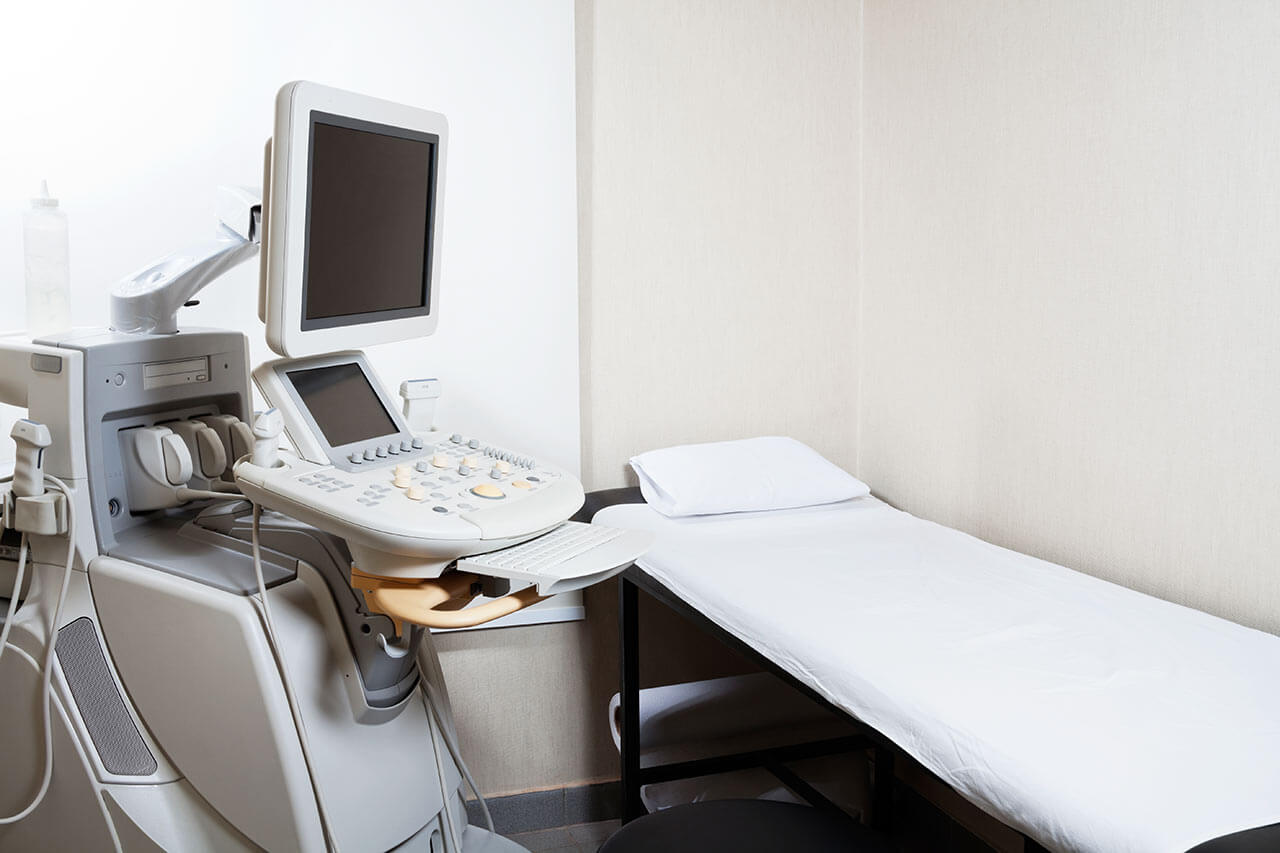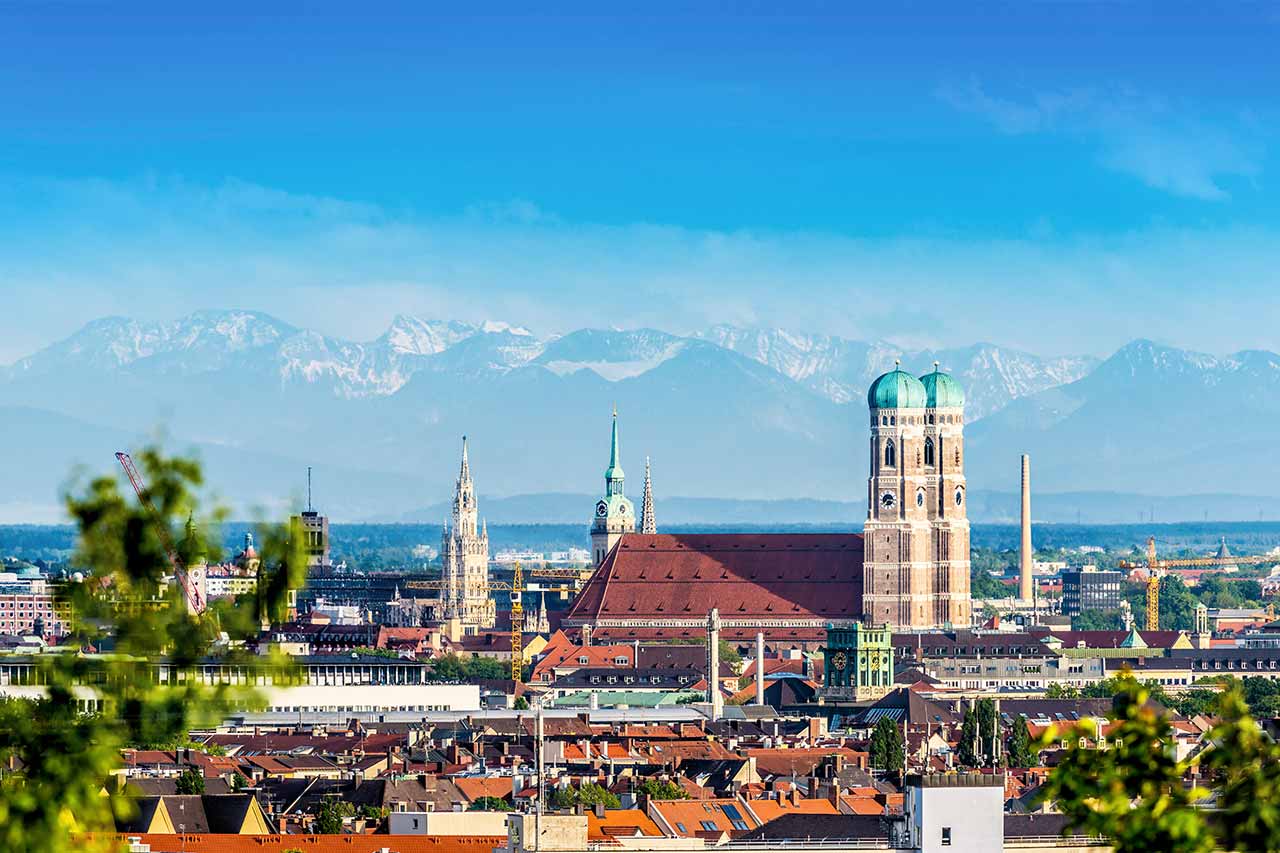
The program includes:
- Initial presentation in the clinic
- clinical history taking
- review of medical records
- physical examination
- laboratory tests:
- complete blood count
- general urine analysis
- biochemical blood test
- inflammation markers (CRP, ESR)
- blood coagulation analysis (aPTT, PT, INR)
- tumor markers
- ultrasound of the abdomen and pelvic organs
- cystoscopy (with biopsy if indicated clinically, additional cost is 2500€)
- nursing services
- services of all leading experts
- explanation of individual treatment plan
Required documents
- Medical records
- Kidney US (if available)
- MRI/CT scan (if available)
Service
You may also book:
 BookingHealth Price from:
BookingHealth Price from:
About the department
The Department of Nephrology at the Urology Clinic Wiener Platz Munich offers the full range of medical services in its area of specialization. Experienced doctors at the medical facility provide comprehensive diagnosis and effective treatment of all kidney diseases using the very latest methods. The focus of the department's medical team is on patients with chronic kidney disease, arterial hypertension, glomerulonephritis, congenital kidney diseases, and diabetic nephropathy. Patients with kidney cancer are treated in cooperation with the Department of Urology. The specialists also have the necessary expertise and skills to prepare a patient for kidney transplant surgery and to care for the patient after surgery. The department's nephrology team does not provide dialysis but only offers advice on renal replacement therapy. If a patient needs such a treatment, he or she can undergo it at the University Hospital Rechts der Isar Munich, a partner of the department. The doctors make every effort to provide effective treatment, taking into account the individual needs and wishes of each patient. The Head Physician of the department is Prof. Dr. med. Christoph Schmaderer.
Together with doctors from the Department of Urology, nephrologists perform diagnostic examinations for suspected kidney cancer. Oncopathology is quite common, and it is asymptomatic in its early stages. The very first step in the diagnostic process is an ultrasound scan. As part of the differential diagnosis, physicians also perform contrast-enhanced computed tomography or magnetic resonance imaging, as well as blood and urine laboratory tests. Confirmation of the diagnosis requires a biopsy followed by histologic examination of the material obtained to determine the type of the malignant neoplasm. The first-line treatment for kidney cancer is surgery. In cases of localized cancer, specialists remove the tumor along with part of the affected kidney. This is an organ-preserving surgery. If the cancer is in an advanced stage, the department's physicians perform a nephrectomy, which removes the kidney along with adjacent tissues and lymph nodes. This type of surgery reduces the risk of kidney cancer recurrence.
An important area of work for the department's medical team is the treatment of chronic kidney disease. This disease causes a gradual deterioration of kidney function, which disrupts the process of purifying the blood from metabolic products and toxins. There is no cure for chronic kidney failure. Therefore, when prescribing treatment, the department's doctors aim to slow down the pathological process and preserve the remaining kidney function. Treatment is based on drug therapy with various groups of medicines. Doctors take control of the underlying disease that has caused the kidney failure, such as arterial hypertension or diabetes mellitus. In addition, the patient is prescribed a diet with limited fluid, protein, and potassium. The second-line treatment is renal replacement therapy (dialysis), which is the removal of waste products and excess fluid from the body using an artificial filter.
The department's specialists also diagnose and treat glomerulonephritis, congenital kidney diseases in adults (with a special focus on the treatment of autosomal dominant polycystic kidney disease), urolithiasis, and kidney cysts. To treat glomerulonephritis, doctors prescribe drug therapy and diet therapy with the exclusion of salty, fatty, fried, and spicy foods from the diet. If a patient has kidney cysts, the department's specialists perform minimally traumatic surgical procedures to remove them. Depending on the size of the kidney stones, endoscopic removal or extracorporeal shock wave lithotripsy may be performed.
The department's range of medical services includes the following:
- Diagnostics and treatment of kidney cancer
- Diagnostics and treatment of chronic kidney disease
- Diagnosis and treatment of hypertensive nephropathy
- Diagnosis and treatment of diabetic nephropathy
- Diagnosis and treatment of glomerulonephritis
- Diagnosis and treatment of kidney stone disease
- Diagnosis and treatment of kidney cysts
- Diagnosis and treatment of congenital kidney diseases with a special focus on autosomal dominant polycystic kidney disease
- Diagnostics and treatment of other kidney diseases
Curriculum vitae
Higher Education and Professional Career
- Medical studies at the Technical University of Munich, the University of Bern (Switzerland), and the Dartmouth Medical School (New Hampshire, USA).
- 2002 - 2007 Preparation for board certification in Internal Medicine with a focus on Nephrology.
- 2007 - 2009 Fellow of the German Cancer Research Center in Heidelberg, Department of Cellular and Molecular Pathology.
- 2009 - 2011 Completed training for board certification in Internal Medicine with a focus on Nephrology.
- Since 2011 Senior Physician, Department of Nephrology, University Hospital Rechts der Isar Munich.
- 2015 Habilitation in Nephrology and professorship.
- Since 2015 Head Physician, Department of Nephrology, Urology Clinic Wiener Platz Munich.
Clinical Focuses
- Diagnostics and treatment of chronic kidney failure and related diseases.
- Diagnostics and treatment of autoimmune diseases with kidney damage.
- Diagnostics and treatment of acute kidney failure.
- Diagnostics and treatment of arterial hypertension with kidney damage.
- Diagnostics and treatment of glomerulonephritis.
- Diagnostics and treatment of congenital kidney diseases.
- Diagnostics and treatment of diabetic nephropathy.
- Specialized genetic consultations on kidney diseases.
- Preparation for dialysis.
- Follow-up care after kidney transplant surgery.
- Follow-up care after the completion of treatment for kidney disease.
Photo of the doctor: (c) Urologie am Wienerplatz Grünwald, (c) Fotografie Thomas Straub
About hospital
The Urology Clinic Wiener Platz Munich is a highly specialized medical complex with state-of-the-art equipment and highly qualified doctors. The clinic specializes in the diagnosis and treatment of diseases of the male reproductive system (prostate, testicles, and penis), bladder, and kidneys. The healthcare facility also provides treatment for andrological diseases with special emphasis on erectile dysfunction and male infertility. In addition, the clinic employs pediatric urology specialists who successfully treat diseases of the genitourinary system in young patients. The clinic works closely with the University Hospital Rechts der Isar Munich and the ISAR Hospital Munich.
The Urology Clinic Wiener Platz Munich has an in-house laboratory for a wide range of tests, including a urine culture, microbiological tests, tumor marker tests, a semen analysis, urethral swab tests, and sex hormone tests. The clinic also has state-of-the-art equipment for ultrasound diagnostics and endoscopic equipment from the famous German company Karl Storz. In the clinic's operating theaters, which are equipped with the latest technology, surgical procedures of varying complexity are successfully performed, ranging from transurethral resection of the prostate and bladder to surgery for the implantation of the AMS 700 penile prosthesis.
The Urology Clinic Wiener Platz Munich is deservedly proud of its high treatment success rates, thanks to which it has gained a leading position in Germany and abroad. The doctors of the medical complex make every effort to provide top-class patient care in a pleasant and comfortable environment. Patients from abroad regularly seek medical help from the clinic, which indicates the excellent reputation of the healthcare facility in the international medical arena.
The clinic is a member of many professional societies, including the German Society of Urology (DGU), the European Association of Urology (EAU), the German Cancer Society (DKG), and the American Urological Association (AUA). The specialists at the Urology Clinic Wiener Platz Munich strictly adhere to the recommendations and standards of these organizations, which also contributes to the excellent quality of medical services.
Фото: (c) depositphotos
Accommodation in hospital
Patients rooms
The patients of the Urology Clinic Wiener Platz Munich stay in comfortable rooms with a modern design. All patient rooms and diagnostic and treatment facilities at the clinic are designed in light colors, which contributes to a peaceful atmosphere and the rapid recovery of patients. Standard patient rooms are furnished with a comfortable bed, a bedside table for storing personal belongings, a wardrobe, a telephone, and a TV.
Meals and Menus
The patients of the clinic are offered delicious and balanced meals three times a day: breakfast, lunch, and dinner. An individual menu can be provided to the patient if necessary.
Further details
Standard rooms include:
![]() Toilet
Toilet
![]() Shower
Shower
![]() Wi-Fi
Wi-Fi
![]() TV
TV
Hotel
You may stay at the hotel of your choice during the outpatient program. Our managers will support you for selecting the best option.




